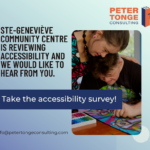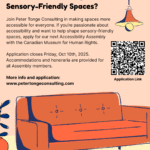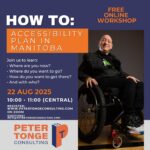More and more disabled people are reclaiming their identities. A disability is no longer a defect, something to be fixed, a stigma, or a source of shame. For many, like me, a disability is something to be celebrated as one of the many things that make a person unique. That is why language is important.
Let’s not use hurtful euphemisms like “special needs,” “handicap-able,” or “person with exceptionalities.” Broader society often uses euphemisms for disability, perhaps because the subject is seen as difficult or unpleasant. This has a serious negative impact on disabled people. Euphemisms can diminish a person’s sense of belonging and pride in their community. Past practice has also shown that euphemisms can evolve into contemporary slurs.
Disability is not a bad word; it is the word disabled people use to describe themselves. It is how I describe myself. Mentioning disability will not shock or surprise us – we know we have one.
Communication must be done with dignity and respect. We are all equals. We can share a common language, our experiences, and our knowledge.
That way, we can all be proud.




